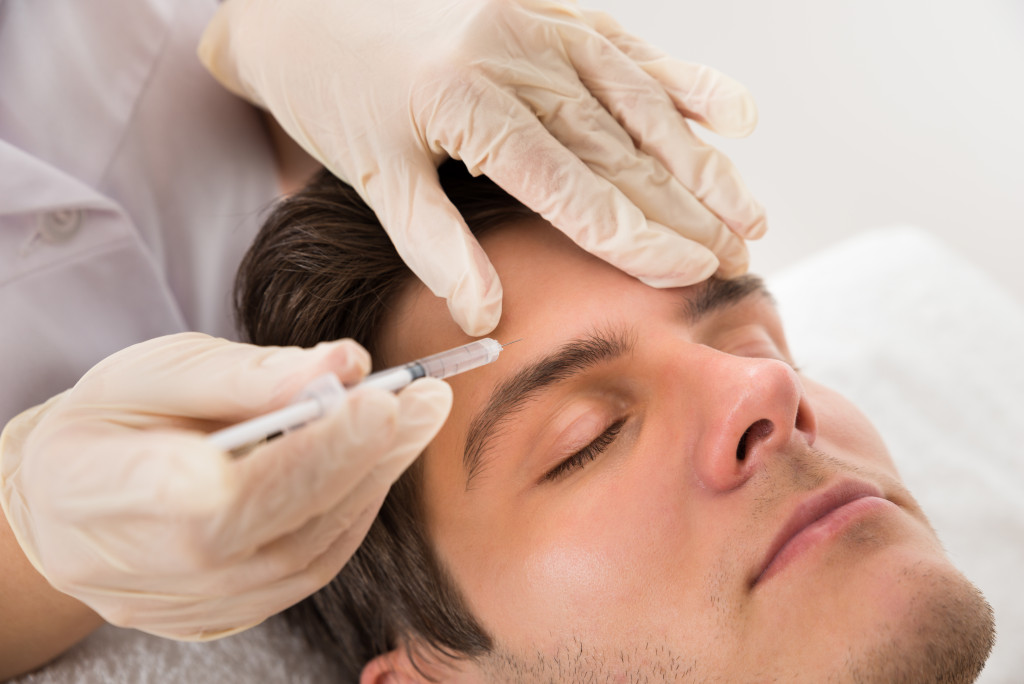Disclaimer: The Lifestyle Elf. This site provides fashion and lifestyle content for informational purposes only.
- Stress can negatively impact the skin, leading to dryness, wrinkles, and acne breakouts.
- Eating a nutrient-rich diet, practicing good skin care rituals, engaging in mindful activities, and getting enough sleep can help reduce these effects.
- Skin tightening treatments, Botox, laser treatments, and dermal fillers can be used to combat stress-induced skin damage.
- Taking the necessary steps to reduce stress levels and maintain skin health can help keep your skin looking healthy and vibrant.
Stress is a part of life that we all encounter from time to time. Various factors, such as work, relationships, or finances, can cause it. However, many people don’t realize stress can also adversely affect their skin. Chronic stress can weaken your immune system, making you more susceptible to skin infections and diseases. In addition, stress can also lead to acne breakouts, dry skin, and premature aging. This blog post will discuss the impact of stress on your skin and offer some valuable tips on combatting its negative effects.
The Relationship between Stress and Your Skin:
Stress can cause your skin to become dull and lifeless since it decreases blood flow to the surface of your skin. This can cause a reduction in collagen production, which is responsible for keeping your skin looking young and vibrant. As collagen depletes, the skin becomes less elastic, leading to wrinkles, fine lines, and loose skin. Moreover, stress can also increase cortisol, which triggers oil production and inflammation, leading to acne breakouts.
Tips to Avoid Bad Skin from Stress
Follow a Skin-Friendly Diet:
What you eat also has a significant impact on your skin health. Ensure to include foods rich in antioxidants, vitamins, and minerals, like berries, leafy greens, nuts, and seeds. These nutrients help to combat oxidative stress on the skin, which is caused by free radicals from the environment, stress, and aging.

Practice Good Skin Care Rituals:
By developing a consistent skincare routine, you can effectively combat the adverse effects of stress on your skin. Start with the basics, like cleansing, toning, and moisturizing. Use products that suit your skin type and address your specific skin concerns. Consider adding a serum or facial oil rich in nutrients to support healthy skin.
Engage in Mindful Activities:
Engaging in relaxing and mindful activities is essential to reduce stress levels. Activities like yoga or meditation can help calm the mind and lower cortisol levels, benefiting your skin health in the long run. Additionally, try to incorporate joy in your daily life, whether through a hobby or spending time with loved ones. This will reduce stress and help boost your mood.
Get Enough Sleep:
Finally, getting enough sleep is crucial for healthy skin maintenance. During sleep, your body releases growth hormones that help to repair damaged skin cells and produce collagen. Aim for at least 7-8 hours of sleep each night by creating a relaxing bedtime routine that includes calming activities like reading, a warm bath, or listening to soft music. You can also switch off all electronic devices at least an hour before bedtime.
Treatments to Combat Stress-Induced Skin Damage:
Skin Tightening Treatments:
If you’re dealing with loose, sagging skin due to stress-induced collagen depletion, consider undergoing a skin tightening treatment. These treatments use radiofrequency energy to heat the skin and stimulate collagen production. They are minimally invasive and can provide long-lasting results with little to no downtime. You can also target specific areas of the body. For example, the neck is a common area that sags as people age. You can get a non-invasive neck tightening treatment to restore firmness and smoothness.

Botox:
Consider getting a Botox treatment for wrinkles, lines, and other signs of aging caused by stress. Botox temporarily blocks nerve signals to the muscles, reducing their activity, and smoothens wrinkles. It’s a quick and effective way to reduce the appearance of aging caused by stress.
Laser Treatments
Laser treatments can also be used to reduce stress-induced wrinkles and fine lines. Laser treatments use targeted light beams to stimulate collagen production and improve skin texture. Depending on the type of laser used, it can take multiple sessions to achieve desired results.
Dermal Fillers
You can opt for fillers if there are deep wrinkles on your face or hands due to stress. Dermal fillers are injections that help plump and volumize the skin, reducing wrinkles and making your skin look younger. But it’s crucial to choose fillers suitable for your skin type and lifestyle.
Stress is a part of life, but it doesn’t have to wreak havoc on your skin. By following the tips listed above, you can help mitigate the negative impact of stress on your skin and promote healthy skin maintenance. Remember to nourish your skin from within, practice mindful activities, and get enough sleep. Additionally, you can consider treatments to combat stress-induced skin damage. By taking the necessary steps to reduce your stress levels and maintain your skin health, you can ensure that your skin remains healthy and glowing.

